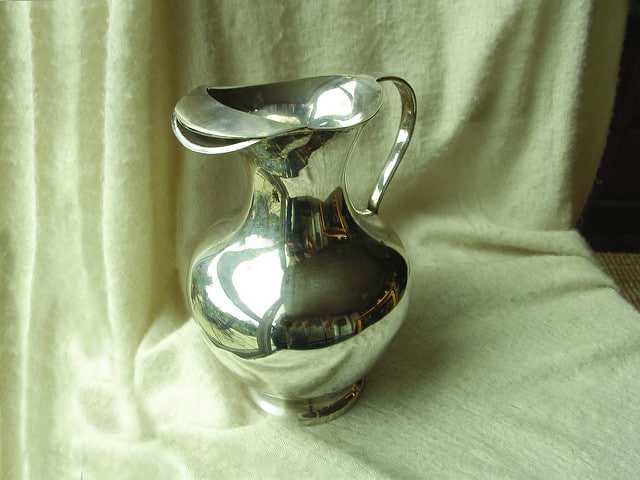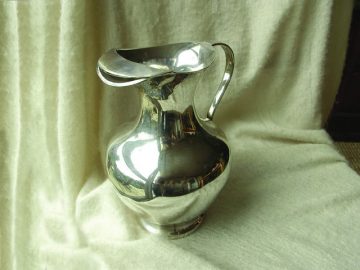“There is nothing in all this world as magnificent as virtue. It glows without tarnish. It is precious and beautiful. It is above price. It cannot be bought or sold. It is the fruit of self-mastery.” GBH Manual
Relief Society Lesson 18 teaches us about virtue and what it means to live a virtuous life. Often, we conflate virtue with chastity and end up spending the entire lesson talking about chastity. But chastity is only one virtue that can bring beauty to our lives through self-mastery. Virtue is defined as “moral excellence; goodness; righteousness” and “a good or admirable quality of property.” http://www.dictionary.com/browse/virtue?s=t
What are some virtuous qualities that you can think of? The teacher may want to write these on the board to go over some of them in more depth. Some examples may include: patience, integrity, kindness, mindfulness, purity, respect, trustworthiness, wisdom, compassion, contentment, courage, fidelity, generosity, gratitude, humility…
What does it mean when Gordon B. Hinckley says that virtue will glow without tarnish? When we live virtuously and act with some of the qualities mentioned above, the goodness and beauty of our souls will shine through to the world. Like polished silver, we will have a self-mastery that allows us to associate with others by making our relationships and conversations a thing of beauty. Our lives and our relationships will bear the fruits of trustworthiness, generosity, and compassion. They won’t be tarnished with negativity, greed, or hate.
Gordon B. Hinckley says,
“…The Lord has given a wonderful mandate. He has said, “Let virtue garnish thy thoughts unceasingly” (D&C 121:45). This becomes a commandment to be observed with diligence and discipline. And there is attached to it the promise of marvelous and wonderful blessings. He has said to those who live with virtue:
“Then shall thy confidence wax strong in the presence of God…
“The Holy Ghost shall be thy constant companion, and thy scepter an unchanging scepter of righteousness and truth; and thy dominion shall be an everlasting dominion, and without compulsory means it shall flow unto thee forever and ever” (D&C 121:45-46).
Could there be a greater or more beautiful promise than this?” GBH Manual
This scripture speaks of an inward, personal power that comes from living a virtuous life. It speaks of dominion, but not a dominion over other beings. It’s a dominion without compulsory means. We will have mastery of our actions, not by forcing ourselves to behave in a certain way, but because first we choose to have virtue in our thoughts. Then we will develop skillful means to act with confidence and through the internal guide of the Holy Ghost.
Using one example of a virtuous quality like honesty, we can see how this works. Young Women President Ann M. Dibb says, “When we are honest in all things, big and small, we experience peace of mind and a clear conscience. Our relationships are enriched because they are based on trust. And the greatest blessing that comes from being honest is that we are able to have the companionship of the Holy Ghost.” Ann M Dibb, Young Women Presidency “I Believe in Being Honest and True.” Ensign, May 2011
Do you have a personal experience where garnishing your thoughts with virtue has helped you to be more skillful in the way you acted? As a young mom of small children, patience has been a virtue I have drawn upon often to help me act with self-mastery in my home. As I have worked to develop the virtue of patience, along with other virtues like empathy, kindness, and contentment, I have found a clearer presence of mind and conscience that allows me to strengthen my relationship with my children.
Gordon B. Hinckley goes on to say,
“Be clean in mind, and then you will have greater control over your bodies. It was said of old. “As [a man or woman] thinketh in his or her heart, so is he or she.” (Prov. 23:7)
Unclean thoughts lead to unclean acts.
When tempted we can substitute for thoughts of evil thoughts of [our Savior] and His teachings. He has said: “And if your eye be single to my glory, your whole bodies shall be filled with light, and there shall be no darkness in you; and that body which is filled with light comprehendeth all things.” GBH Manual, words in italics added for gender neutrality.
How does this passage explain the connection between mind and body? As we garnish our minds with virtue, we act upon those virtues and our bodies are filled with light. Then we begin to think and act with the light that fills our bodies.
“Mental control must be stronger than physical appetites or desires of the flesh. As thoughts are brought into complete harmony with revealed truth, actions will then become appropriate…Each of us, with discipline and effort, has the capacity to control our thoughts and our actions. This is part of the process of developing spiritual, physical, and emotional maturity…” GBH Manual
The path to living a virtuous life will also be fraught with difficulty. We will fail sometimes. As much as I try to garnish my mind with patience and express that patience in my daily life as I raise my kids, sometimes I give in to the emotions that arise from my body. Sometimes I fail to be content in my life or mindful during the time I spend with my kids. Sometimes I become frazzled with the chaos in my home and lack the compassion that I need in order for my relationship with family members to flourish and grow. Seriously, as I’m preparing this lesson, I’ve been asked about 20 questions within the last two minutes. And yes, I just bribed my kids to go away from me for five minutes. Virtue is not always easy. But we don’t need to be perfect.
President Hinckley said, “Be true to yourselves and the best you have within you.” GBH Manual
Patricia T. Holland said, “We must have the courage to be imperfect while striving for perfection.” Patricia T. Holland, Young Women Presidency “One Thing Needful: Becoming Women of Greater Faith in Christ.” Ensign, October 1987
Doing the best we can is all that God expects of us. Eliza R. Snow said, “[Joseph Smith] said he did not care how fast we run in the path of virtue. Resist evil, and there is no danger; God, men, and angels will not condemn those that resist everything that is evil, and devils cannot; as well might the devil seek to dethrone Jehovah, as overthrow an innocent soul that resists everything which is evil.” Eliza R. Snow, Relief Society President “Teachings of the Presidents of the Church: Joseph Smith.” 2007, p. 214
Virtue is not something that can be lost or ruined. Eliza R. Snow made it clear in the passage above that virtue is something that we practice constantly as we resist negative impulses and embrace qualities from which moral excellence flows. No matter what mistakes we have made, whether they are sexual sins or egregious acts that have hurt us or others, we can rise above them and find forgiveness.
“Let me…assure you that if you have made a mistake, if you have become involved in any immoral behavior, all is not lost. Memory of that mistake will likely linger, but the deed can be forgiven, and you can rise above the past to live a life fully acceptable unto the Lord where there has been repentance. He has promised that He will forgive your sins and remember them no more against you (see D&C 58:42).” GBH Manual.




7 Responses
I love this blog. I was just curious what happened to lesson 17?
I hope it didn’t get forgotten. I’ve been looking forward to reading it, especially regarding some of the quotes about women’s priorities and pursuits.
https://exponentii.org/relief-society-17-continue-in-the-great-process-of-learning/
I am also looking for lesson 17. Help!
It’s here: https://exponentii.org/relief-society-17-continue-in-the-great-process-of-learning/
Any idea on when lesson 19 is going to be posted?
I too am looking for lesson 19.